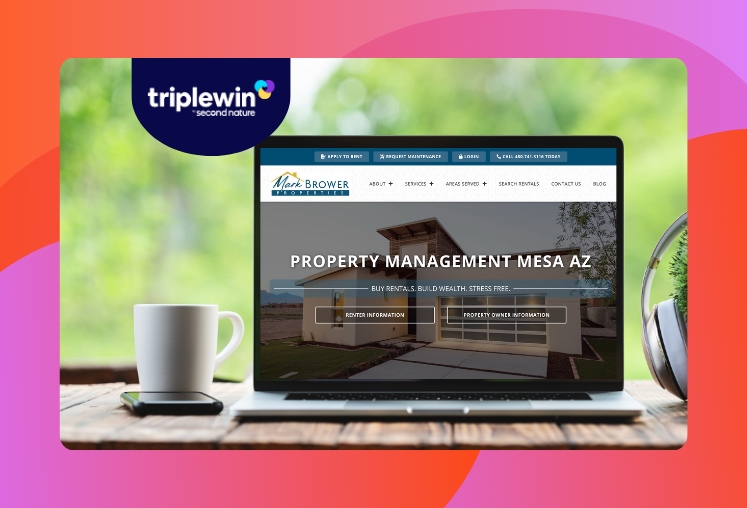
Build a Brand Residents Trust, and Vacancies Take Care of Themselves
Every property manager dreams of a flood of qualified, eager applicants to fill their vacancies, followed by happy renewals for years on end. But many of them don’t know how to position their company to create these happy, loyal renters. By branding yourself as a resident-friendly property management company, you can stand out from your competitors, attract residents to fill vacancies more quickly, and increase renewals, all without significantly changing your company’s process. At OneFocus Property Management, I’ve leaned into resident education as a means of brand building, but there are plenty of other ways to establish yourself as resident-friendly. The key is to make sure you’re actually delivering on that brand promise to drive genuine brand affinity among residents. Teach residents well, and they’ll trust you back I’ve previously written about how my go-to-market approach leans heavily on investor education. Now, as a second phase of growth, I’m building similar materials for residents. The sad reality is that there’s a huge void for resident education. In many communities, no one is educating residents on what’s available to them, what their rights are, or what they should expect from a high-quality rental property. That’s a gap that I want to fill. What does that look like? For one thing, I share with them the market research that I’ve developed for clients. I give them context for the market that they’re renting in so they can better understand things like pricing and competition. I also develop guides for the areas I service, giving them an overview of different neighborhoods and what kinds of housing stock are available here. I even give an overview of my competition, because if that’s what they’re looking for, I’d rather have them find it than rent from me and be a bad fit. I frame a lot of information through the lens of Fair Housing, giving residents a better understanding of their rights and how they should be treated. That starts to build a baseline knowledge among residents, which improves the property management industry as a whole, not just my company. In some markets, like mine, most residents don’t understand their rights or how they’re supposed to be treated, so when you start treating them correctly, it stands out. For renters, there’s always some insecurity about housing. My goal is to provide as much security as possible. When you provide valuable information to applicants and residents, you start building trust and brand affinity. Beyond education: More ways residents see your brand Our branding doesn’t just happen through resident education, even though that is a huge focus for me. We’re also looking to build loyalty with each and every touchpoint in the resident journey, even if they never actually end up renting from us. Listing sites To start, we’re branding our listings on sites like Zillow and Trulia. When I say that, I don’t just mean a watermark on each of the listing photos. Instead, we’re writing listings in a way that makes it clear to the reader that it’s a OneFocus property. Each of our listings incudes: As much information as possible, clearly detailed A high-effort, high-energy video introducing the property and driving engagement High quality photos that reflect the effort we put into our management An easy self-scheduling process for showings We’re always trying to make it easier for people to recognize us and see how present we are. The goal is ultimately to shift those users over to our website to look at our available properties there. If we can achieve that, we can make an even bigger impression and really drive a positive association with our company. Community involvement One of the next areas I want to get my company even more involved is community events. I’d love to work with local organizations to provide education to the general public, especially on things like: What is Fair Housing? How does it work? How is the housing market changing in our area? What’s typically expected of residents when they apply for a rental? It’s a great way to continue that resident education while also getting more eyes on our company, and of course it’s a fantastic way to give back to the community. This is a people business, so getting involved is essential. Review management We work hard to make sure that the reviews people are posting about us online tell the true story of interactions with our customers. That means we’re not only encouraging happy residents to leave reviews, but we’re also creating moments of delight that they actually want to write about. It also means that, when we get a negative review, we’re not dismissing it out of hand. Instead, we’re taking that feedback seriously and always trying to improve. A brand promise means nothing if you don’t deliver The biggest part of this, of course, is actually delivering a resident experience that upholds the trust and loyalty residents are putting in us. If we’re not delivering on our brand promise, we’re not going to maintain that brand for very long. Responsiveness defines real success For us, success isn’t just about increasing tenant duration or holding a certain renewal rate. Instead, it’s about delivering high quality service at market rents. That’s what’s best for us, our residents, and our clients. Top of the list is responsiveness. We want to build a reputation as trustworthy, responsible people. We’re on top of our stuff and we’re willing to be held accountable. That means not delaying things. We’re highly responsive to every single person that we interact with, not just our residents and our investor clients. Think about all the other people who come into contact with us: vendors, judges, attorneys, tax officials… the list goes on. I want everyone in the community to know that we’re responsible and can be trusted. This isn’t just about branding, it’s about helping people understand the value that we bring to the table and how we’re different. When residents become raving fans A lot of small businesses struggle to measure whether or not their branding efforts are working. They might feel like they’re creating a trusted perception of their company, but how can they really know? Well, here are a few ways we’ve seen our branding efforts reflect back on us. For one thing, on the off chance that we’ve stopped working with a client, we’ve had residents who were devastated. When they found out that we weren’t going to be managing their home anymore, they were upset, because they were going to miss the level of service we deliver. That’s a huge compliment, and such a testament to the relationships that we develop. Second, we’ve had prospective applicants come to us and say, “I want to rent from you. Can you help me find a property?” Rather than finding the perfect property that just happens to be managed by us, they know first and foremost that they want to rent from us. Those calls are always hugely flattering, and we want to do everything we can to deliver for them. I’m looking to build a true multi-generational reputation. In fifteen years, I want someone to call me up and tell me, “Hey, I grew up in a OneFocus house. I want to live in one again.” That’s true loyalty. Final thoughts: Branding works when you know your market—and yourself Like everything in real estate and property management, all of this is subject to your local market. A lot of these branding strategies are going to be harder in more competitive markets, but they’re also going to matter more. There are more companies for residents to compare you to, and that means you have to meet a higher standard. At the same time, though, larger markets also offer more opportunity for collaboration. Maybe there’s another company that you can partner up with on some of this educational content, or just brainstorm and get creative with. Finally, some markets have longer or shorter renewal notice periods than others. The tighter the notice period, the more your branding is going to matter. With less lead time for a vacancy, you need to have eager, excited prospective residents lining up around the block to apply. That’s all down to your brand. Looking for more insights from expert property managers? Join the Triple Win Property Management Facebook Group.
August 25, 2025
Read more











